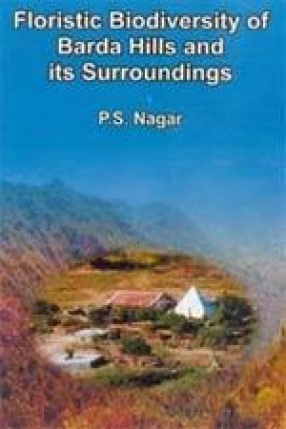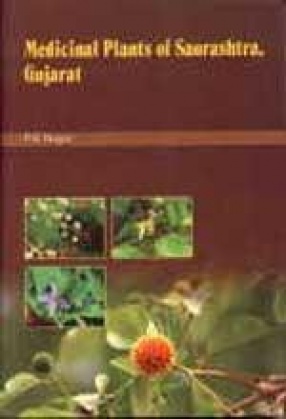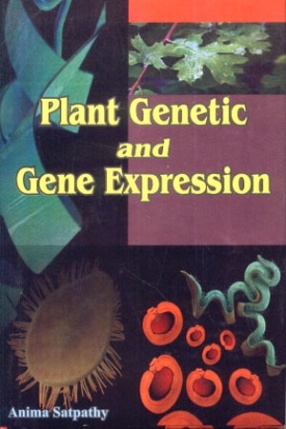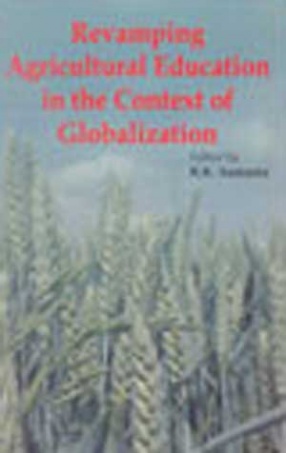The book “Floristic Diversity of Barda Hills and its Surroundings†is first of its kind emphasizing the contribution of J.I. Thaker (1910) to the field of plant taxonomy and ethnobotany of Gujarat. His major contribution was on “Vanaspati Sastra – Barda dungar ni-Jadibuti taeni Pariksha anae Upayog†in Gujarati (1910). After his premiere work, no comprehensive study were undertaken to identify the multifarious changes that have come about in the area. In view of this, an attempt was made to understand the floristic diversity with different facets of taxonomic an d ecological understanding in the Barda Hills and its surroundings. The basis of the whole study was based on the hypothesis that – the “habitat destruction, over-exploitation of biotic resources, pollution and introduction of exotic species as a result of human activities in the area over a period of ten decades, might have caused decline or shift in the species composition in the Barda Hills and its surroundingsâ€. Justification to the hypothesis includes various descriptive findings on biodiversity, historical understanding , floristic diversity, biogeography, species diversity (ecological prospective), genetic diversity and bioresources.
Floristic Biodiversity of Barda Hills and Its Surroundings
by P.S. Nagar
$43.20
$48.00
In stock
Free & Quick Delivery Worldwide
All orders amounting to US$ 50 or more qualify for Free Delivery Worldwide. For orders less than US$ 50, we offer Standard Delivery at $14 per book.
ABOUT THE AUTHOR P.S. Nagar
Dr. P.S. Nagar was born in Imphal city, Manipur on 2nd March, 1972. He pursued his higher education B.Sc. (Hon.) and M.Sc. Bioscience at Sri Sahya Sai Institute of Higher Learning (SSSIHL), Prasanthinilyam, Andhra Pradesh. He completed his Ph.D. on “Biodiversity of Barda Hills and its surroundings – a floristic view†from Saurashtra University, Rajkot in 2000. His teaching career started as an Adhoc Lecturer in the Department of Biosciences, Saurashtra University, Rajkot during 1998-2000. Later, he worked as a Principal Investigator (2000-2001) on the project of “Floristic diversity of Barda Sanctuary, Gujarat†under the forest scheme of GEER Foundation, Gandhinagar. The project was followed by the position of Research Associate (2001-2004) in the Department of Biosciences, Saurashtra University, on the topic of “Coastal plant biodiversity of Saurashtra, Gujarat†and “Floristic diversity of Girnar, Gujaratâ€. During the same period he also worked as a Principal Investigator on the project “Medicinal plants of Saurashtra†GEER Foundation, Gandhinagar. He has also played a key role (Coordinator) in proposing and establishing “Inter-university Medicinal Plant Laboratory for Analysis, Nurture and Therapeutics†(IMPLANT) at Saurashtra University, Rajkot in the year 2001, presently, he is working as a Scientific Advisor with the center. The division has a well-established demonstration medicinal and aromatic farm with extraction unit and database on traditional medicinal plants of Saurashtra region. Presently the team of IMPLANT is engaged in developing finger prints and quality standards of various medicinal and aromatic plant species. Dr. Nagar is basically a plant taxonomist and is actively engaged in the study of Plant biodiversity in Saurashtra and other parts of Gujarat region. He has studied the flora, phytogeography, ethnobotany, ecology, threatened plant species and issues pertaining to biodiversity conservation for nearly 9 years now. The study includes more than 64 sites in Saurashtra region covering: forest areas, grasslands, coastal regions and fallow lands. The result of his investigations has appeared in prestigious Indian and international journals. He is associated with Forest division, Agriculture Universities, National Institutes etc. and is playing an important role in formulation, planning and finalization of floristic and medicinal plant studies on Kathiyawad peninsula and other forest regions of Gujarat. He is Life member of Indian Association of Angiosperm Taxonomy (IAAT).
reviews
0 in total
Review by Anonymous
Be the first to review “Floristic Biodiversity of Barda Hills and Its Surroundings” Cancel reply
You must be logged in to post a review.
Bibliographic information
Title
Floristic Biodiversity of Barda Hills and Its Surroundings
Author
Edition
1st ed.
Publisher
ISBN
8172333994
Length
xvi+325p., Maps; Plates; Tables; Figures; References; Appendices; 25cm.
Subjects
more by P.S. Nagar see more
similar bookssee more
Revamping Agricultural Education in the Context of Globalization
In the recent globalization ...
$66.60
$74.00






There are no reviews yet.